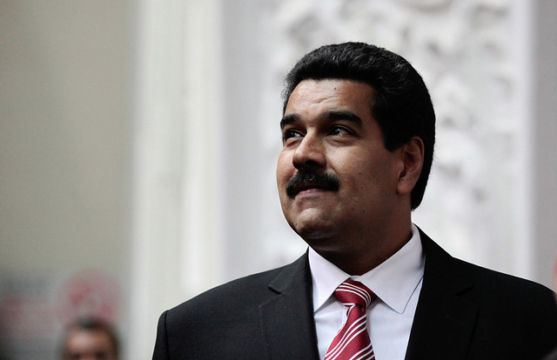Colombia’s Steps at the Hague
Nothing succeeds in bringing a nation together — and in transcending sharp political differences — than disputes over national territory.
On January 11, the Inter-American Dialogue hosted a discussion on the Essequibo controversy, a significant geopolitical challenge in Latin America and the Caribbean. The controversy involves a territorial dispute between Guyana and Venezuela over a vast area of land located in the eastern part of Venezuela that encompasses much of Guyana's territory, including land and offshore territory where there have been significant oil and gas discoveries since 2015. The disagreement has intensified, and on December 3, 2023, Venezuelans approved a referendum called by the Nicolás Maduro regime, claiming sovereignty over the Essequibo, and disregarding the non-interference order of the International Court of Justice (ICJ).
Inter-American Dialogue President & CEO, Dr. Rebecca Bill Chavez, described Maduro’s actions as reminiscent of the 1982 Argentine military junta’s ill-fated decision to try to take control of the Malvinas/Falkland Islands to distract from a wide array of domestic challenges. She called it Maduro’s “Galtieri moment.”
Dr. Fabiana Perera, Senior Faculty Associate at the Defense Security Cooperation University, provided context on Venezuela-Guyana bilateral relations and the December 3rd referendum. In the wake of Venezuela’s opposition primary, Maduro’s strategy was to create a distraction and bring his supporters to the polls.
Dr. Ryan Berg, Director of the Americas Program at the Center for Strategic and International Studies, highlighted that the referendum proves that Venezuela’s electoral apparatus is in shambles. He also explained that morale in the Venezuelan armed forces is low, and they do not have necessary resources for a successful invasion. Nevertheless, Berg emphasized that the border crisis is susceptible to misinformation and miscalculation in addition to hybrid, grey zone tactics.
Mark Feierstein, Senior Advisor at the United States Institute of Peace (USIP) Latin America Program and Albright Stonebridge Group’s Americas practice, asserted that any military or aggressive action would be disastrous for Venezuela. The regime would face further isolation, particularly from Brazil and Caribbean countries. This situation underscores the universal principle of respecting borders, akin to issues between Russia and Ukraine or China and Taiwan.
The Essequibo controversy has garnered significant international attention. Given Brazil's proximity to Guyana and Venezuela, the nation has taken precautionary measures, placing troops along its border. CARICOM has played an active role, hosting discussions between Ali and Maduro in St. Vincent. Feierstein noted the US response, including joint military exercises with Guyana. He also warned that any disruption could impact global markets and lead to an increase in migration. All panelists agreed that it is important to consider Maduro’s actions in the context of the Barbados Agreement as well as upcoming elections in Venezuela.
Nothing succeeds in bringing a nation together — and in transcending sharp political differences — than disputes over national territory.
Venezuelan President Nicolas Maduro this month made a three-day visit to China, his first official state trip abroad since taking office. Was the trip a success?
Without credible observers, Venezuela’s December 6th elections will be another step towards disaster.
 Featured Image: Ian Mackenzie / Flickr / CC BY 2.0
Featured Image: Ian Mackenzie / Flickr / CC BY 2.0

